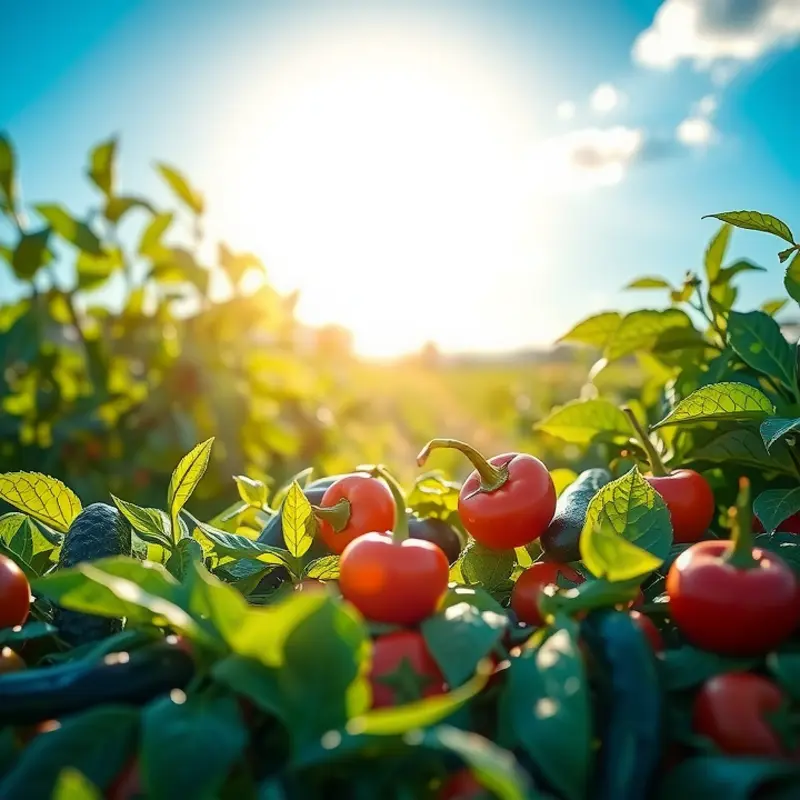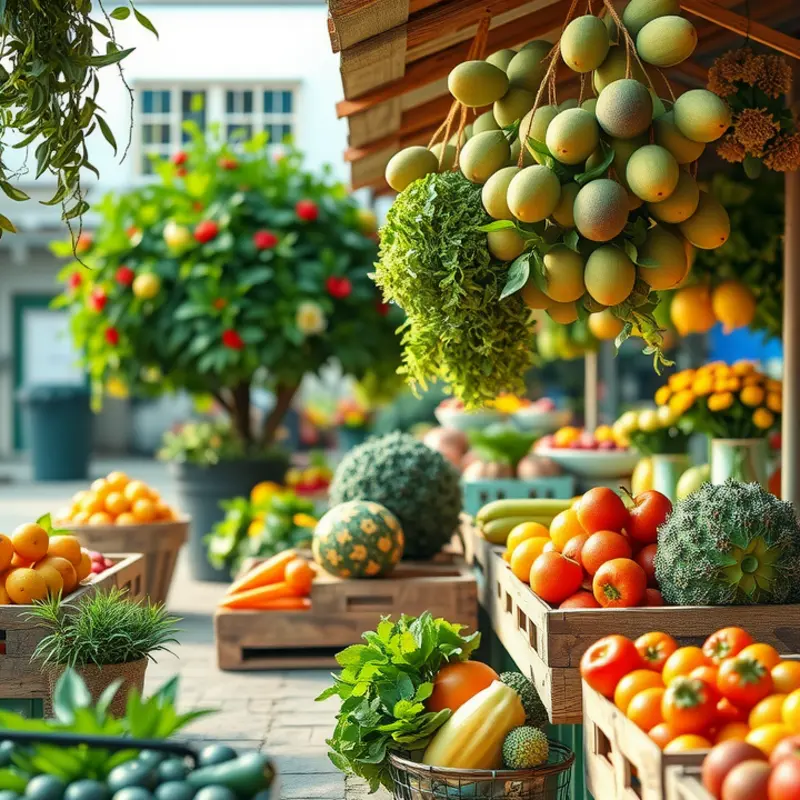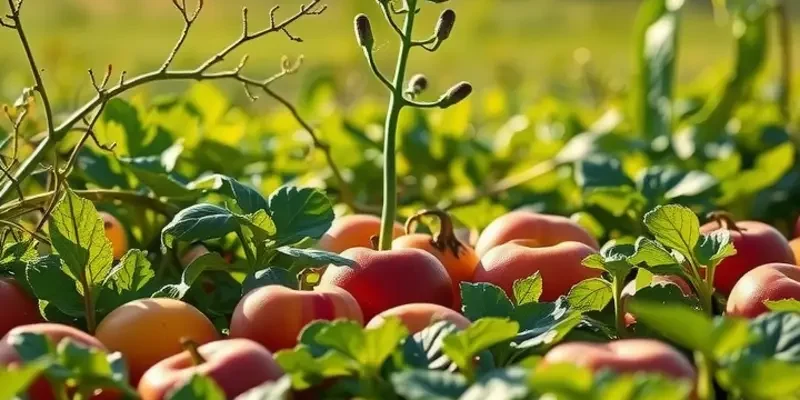Making conscious choices about fruit purchasing plays a significant role in promoting sustainable agriculture and protecting our planet. As consumers become more aware of the impact their food choices have on the environment, the demand for ethically-sourced produce continues to rise. By understanding the practices behind ethical fruit purchasing, individuals can not only make healthier choices for themselves but also contribute to a better future for the ecosystem and farming communities. This guide serves as a practical resource to inspire and empower you to make informed decisions about the fruits you choose to buy.
Understanding Ethical Sources

The journey towards ethical fruit purchasing begins with understanding the sourcing practices that influence the sustainability of our planet. Ethical sourcing is not just about buying fruit; it’s about ensuring that our purchasing power supports farming methods which positively impact the environment and communities.
Farming methods play a crucial role in determining the sustainability of fruit production. Conventional farming often relies on synthetic pesticides and fertilizers, which can lead to soil degradation and water pollution. Such practices may increase yield in the short term but can harm ecosystems in the long run. By contrast, organic farming avoids synthetic chemicals and emphasizes maintaining ecological balance.
Organic farming practices strive to enhance soil fertility through natural means, such as crop rotation and composting. This results in healthier soil capable of retaining water and nutrients, which not only reduces the need for irrigation but also supports biodiversity. Organic farms often harbor more pollinators and beneficial insects, contributing to a balanced ecosystem.
Fair-trade fruit options go a step further by prioritizing social equity alongside environmental concerns. These practices ensure fair wages and working conditions for farm workers, often improving their quality of life and supporting community development. By choosing fair-trade fruits, consumers can be assured that their purchases contribute to sustainable practices that benefit both people and the planet.
When distinguishing between these different options, look for certifications and labels on fruit packaging. Organic and fair-trade labels are more than just marketing; they indicate compliance with rigorous standards aimed at promoting sustainable and ethical practices.
For those interested in adopting a more environmentally friendly lifestyle, understanding the nuances of fruit sourcing can be an enlightening trip. It invites a closer examination of how daily choices affect the broader issue of global sustainability. To delve deeper into sustainable practices in the kitchen, consider exploring resources on eco-smart kitchen storage. This will further align your everyday actions with an environmentally-conscious lifestyle.
By equipping ourselves with knowledge about ethical sourcing, we gain the power to make informed, responsible choices that align with environmental values. This understanding isn’t just an abstract concept—it’s a vital component of making eco-friendly choices in our everyday lives.
Practical Tips for Ethical Fruit Shopping

Shopping for fruits ethically involves a thoughtful approach that can make a significant impact on the environment. Here are some practical tips to guide your choices:
1. Choose Local Farmer’s Markets
Purchasing fruits from local farmers reduces the carbon footprint associated with transporting goods over long distances. It also supports local economies and provides fresher produce. By visiting farmer’s markets, you can engage directly with growers, gaining insights into their farming practices. This connection often encourages sustainable and eco-friendly agriculture.
2. Select Seasonal Produce
Consuming fruits that are in season not only ensures peak flavor and nutrition but also reduces demand for off-season imports. Seasonal fruits have traveled shorter distances to reach you, thereby minimizing environmental impact. Additionally, acknowledging seasonality helps support biodiversity, as farmers are encouraged to rotate crops in tune with nature’s cycles.
3. Look for Organic Options
Organic farming eschews synthetic pesticides and fertilizers, which can pollute soil and water. Opting for organic fruits signifies a commitment to reducing harmful chemicals in the environment. While organic options may sometimes be pricier, they are often healthier and more sustainable, benefiting both consumers and ecosystems.
4. Support Fair-Trade Practices
Many fruits are imported from countries where labor conditions can be challenging. Supporting fair-trade products ensures that workers receive fair wages and work in safe conditions. Fair-trade certifications indicate that social, economic, and environmental standards are being met, promoting sustainable farming and improving livelihoods.
5. Avoid Styrofoam and Excessive Plastic Packaging
Look for fruits that come with minimal packaging. Styrofoam and plastic are detrimental to ecosystems and take centuries to decompose. Instead, choose loose fruits or those packaged in compostable or recyclable materials. Bringing your own bags or containers further reduces waste and promotes a zero-waste lifestyle.
6. Be Informed about Fruit Origins
Understanding where and how your fruits are produced can help you make more conscious choices. Many regions employ different farming practices, which can affect environmental impact. Researching the origins and production methods of your favorite fruits enables more informed decisions, steering you towards eco-friendly options.
For more insights on sustainable and eco-friendly practices beyond just fruit shopping, consider exploring eco-smart kitchen storage techniques.
By implementing these tips, you contribute to a healthier planet while enjoying delicious and diverse fruits. Small changes in your purchasing habits can collectively make a considerable difference in the health and sustainability of our environment.
Final words
Choosing ethical fruit options is not merely an individual choice but a collective step towards a more sustainable future. By understanding the impact of your purchasing decisions, you become a part of the movement that values not just health, but also the well-being of our planet and its people. As you embark on this journey of ethical consumption, remember that every fruit purchased from sustainable sources helps foster positive change. The power to make a difference lies in your hands. Start small, remain mindful, and engage with your local food community to inspire others to join in the movement.








